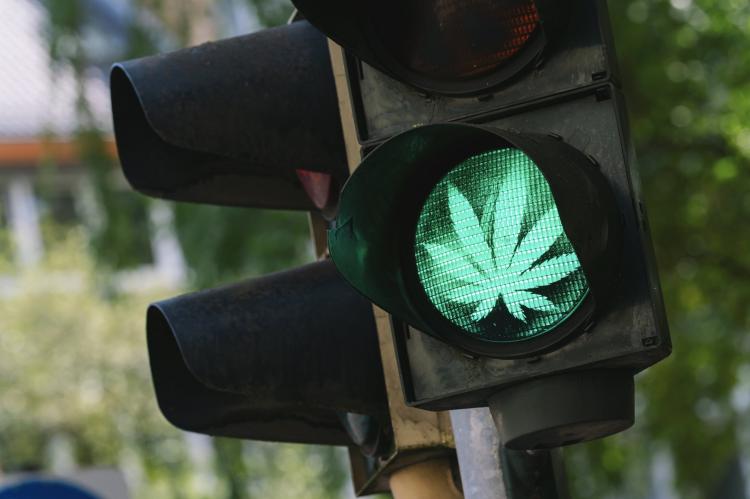Canopy Growth CEO sees U.S. pot market opening in 2022, ‘regardless of who’s in the White House’
Canopy Growth’s (WEED.TO)(CGC) chief executive officer expects the United States cannabis market to open up at the federal level as early as 2022 as pressure builds from state governments embracing recreational pot sales.
“My view is we will have something akin to federal permissibility, maybe in 2022, possibly 2025 at the outside. That’s regardless of who’s in the White House,” David Klein told Yahoo Finance Canada in an interview.
“Every single state that adds cannabis as a legal product puts a little more pressure on the federal government not to make criminals of people operating legitimate businesses.”
For Canopy, the policy shift would greenlight its US$3.4 billion acquisition of Acreage Holdings (ACRG-U.CN), a New York-based multi-state seed-to-retail pot firm whose board of directors includes political heavyweights like former Prime Minister Brian Mulroney and former Speaker of the United States House of Representatives John Boehner.
The international deal, believed to be the first of its kind when announced in April 2019, hinges on cannabis production and sales becoming federally legal in the U.S., and would fully unlock the world’s largest pot market.
“We’re not just sitting on our hands waiting for that,” Klein said. “We want to understand the North American customer. We want to innovate our product offerings and get those products into the hands of Canadians, and people in the U.S. through our partnership with Acreage, so that upon federal permissibility we have a strong position.”
Canopy has stumbled when it comes to matching its offerings with consumer buying habits. Last year, the company took a $32.7 million hit from product returns and price changes primarily linked to weak sales of oil and soft-gel capsules. In its latest quarter, long-awaited vapes, edibles, beverages and other so called “cannabis 2.0” amounted to just two per cent of sales due to production delays. Recreational sales plunged 28 per cent quarter-over-quarter as consumers bought value-priced dried flower from Canopy’s competition during COVID-19 stockpiling.
Klein praised rival Aurora Cannabis’ (ACB.TO)(ACB) popular “Daily Special” dried flower brand priced at $5 per gram to compete with the illegal market, calling it “a very good quality product with the right THC level,” but not “necessarily sticky from a brand standpoint.” Aurora recently said the brand commands roughly 10 per cent of the legal cannabis market in Ontario.
Klein is in the midst of a sweeping overhaul of Canopy’s operations, paring down its workforce and cultivation footprint, and refocusing the company on three markets: Canada, the U.S., and Germany. The problem, he said, is changes to the supply chain take up to six months to flow through to the product level.
“It’s been a fairly constant battle since I arrived at the company to actually be able to consistently meet the orders that we are able to get from the provinces,” said Klein, who took the top job at the world’s most valuable cannabis company in January. “We’re working very diligently to get that fixed so that we’re not leaving money on the table in terms of sales.”
“The company has often had orders, and we have a lot of inventory, but we don’t have the inventory in the precise format or the precise packaging that will allow us to fulfil the order,” he added.
At the same time, Canopy and its peers continue to navigate a minefield of evolving regulations nearly two years after Canadian recreational legalization.
One point of contention has been limits on how many of the company’s newly-launched infused-beverages are allowed to be purchased at one time. The rules equate a single can containing 2 milligrams of THC to 5.1 grams of dried flower, meaning only five can be purchased in a single order due to the 30 gram limit.
“It’s a crazy comparison,” Klein said.
Canopy Growth’s vice president of communications Jordan Sinclair said the rules are more baffling when applied to the 10 milligram of THC per serving Deep Space drink that recently started being shipped to retailers.
“Because the equivalency factor is based on the volume in the can, a consumer can buy more of our most potent product than they can of our least potent product,” he said. “It’s not a rule that accomplishes the objective it’s designed to accomplish.” (Deep Space cans are 222 millilitres, compared to the 355 milliliter cans used for the Tweed and Houseplant drinks.)
Another ongoing challenge is Apple’s decision to ban vape-related apps in its online marketplace, citing health concerns. Canopy argues the smartphone software improves safety through a locator feature and passcode lock that keeps children from accessing the potent cannabis extract inside the easy-to-use device. Canopy currently offers a web-based alternative for iOS users. The apps are still available for Android devices.
“Several of the people on our leadership team have young kids,” said Klein. “There has been dialogue, but there hasn’t been movement with Apple. Trying to put a lot of pressure on Apple is punching a bit above our weight.”
- Log in to post comments

